Results
-
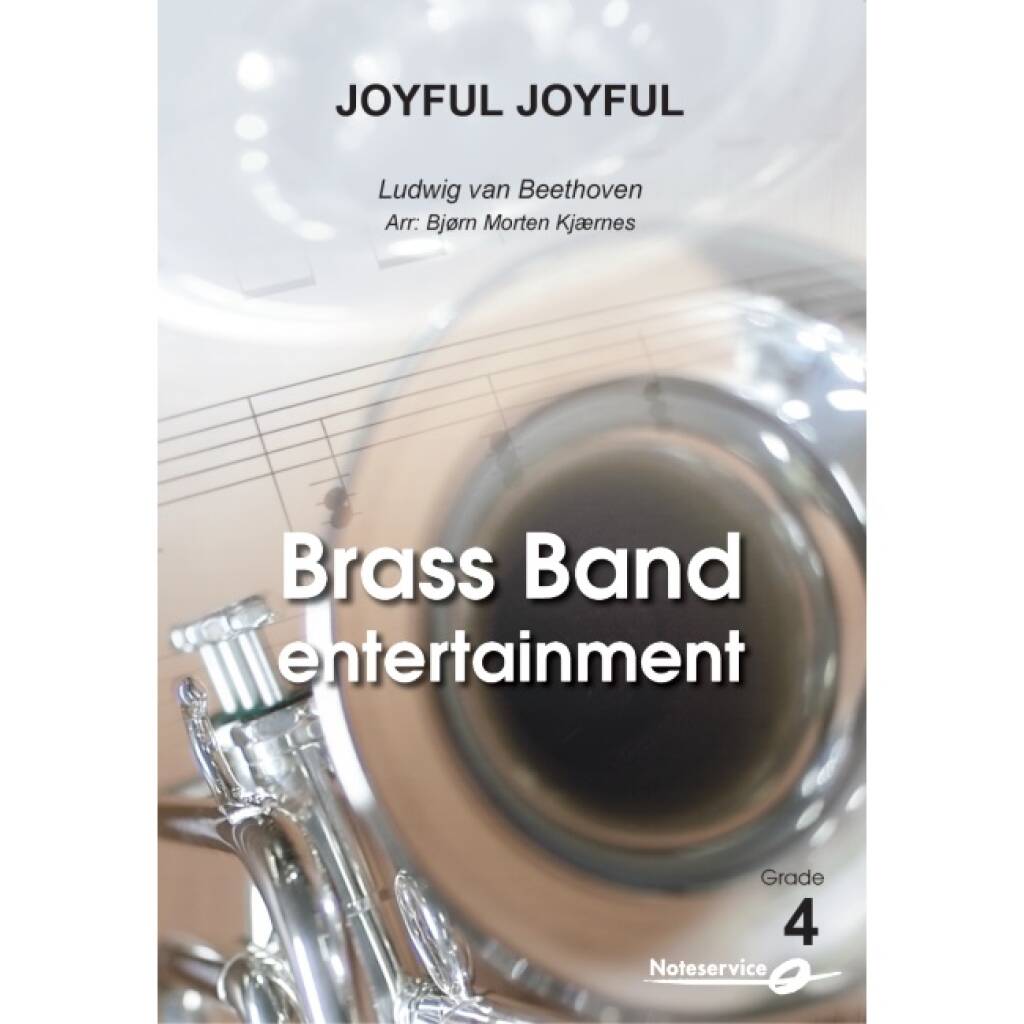 £127.30
£127.30Joyful Joyful - Ludwig van Beethoven - Bjorn Morten Kjaernes
Beethoven's everlasting melody keeps popping up in different arrangements. This one is inspired by the version made to the movie "Sister Act". Gospel at its best!You may use this piece both in church concerts and entertainments shows.This is a fine number to practice sixteenths syncopations. Often, most players have similar rhythm and phrasing, but with different pitches. Extended harmonies and ensemble balance are also elements to work on. Two groups have special roles:- If you perform the arrangement instrumental, 1st Solo Cornet and Solo Horn are both important. The solos may be played as written or improvised. There is also an optional womens choir arrangement (SSAA)included in the set. - The bass line is also challenging and very important. Make it groove!
Estimated dispatch 5-14 working days
-
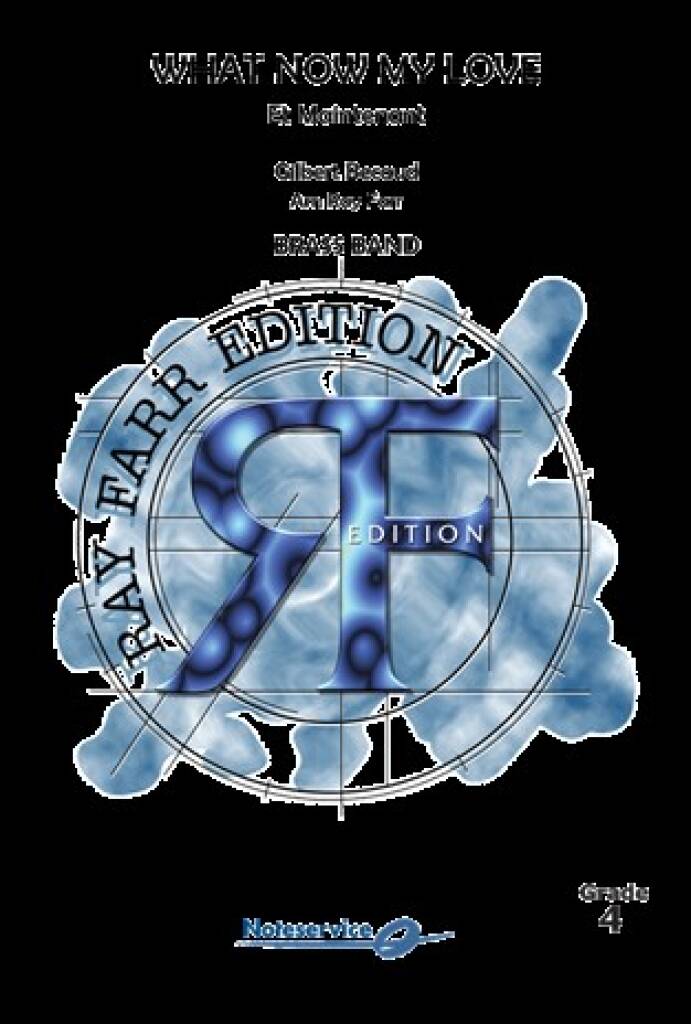 £127.30
£127.30What Now My Love - Gilbert Becaud - Ray Farr
What Now, My Love was written in 1961 by composer Gilbert Becaud and lyricist Pierre Delanoe with the original title Et Maintenant.Very many top, internationally renowned artists have recorded this song including Elvis Presley, Frank Sinatraand Shirley Bassey.Ray Farr has set the emotional song to the ostinato of Ravel's Bolero, and features several soloists from within the band.
Estimated dispatch 5-14 working days
-
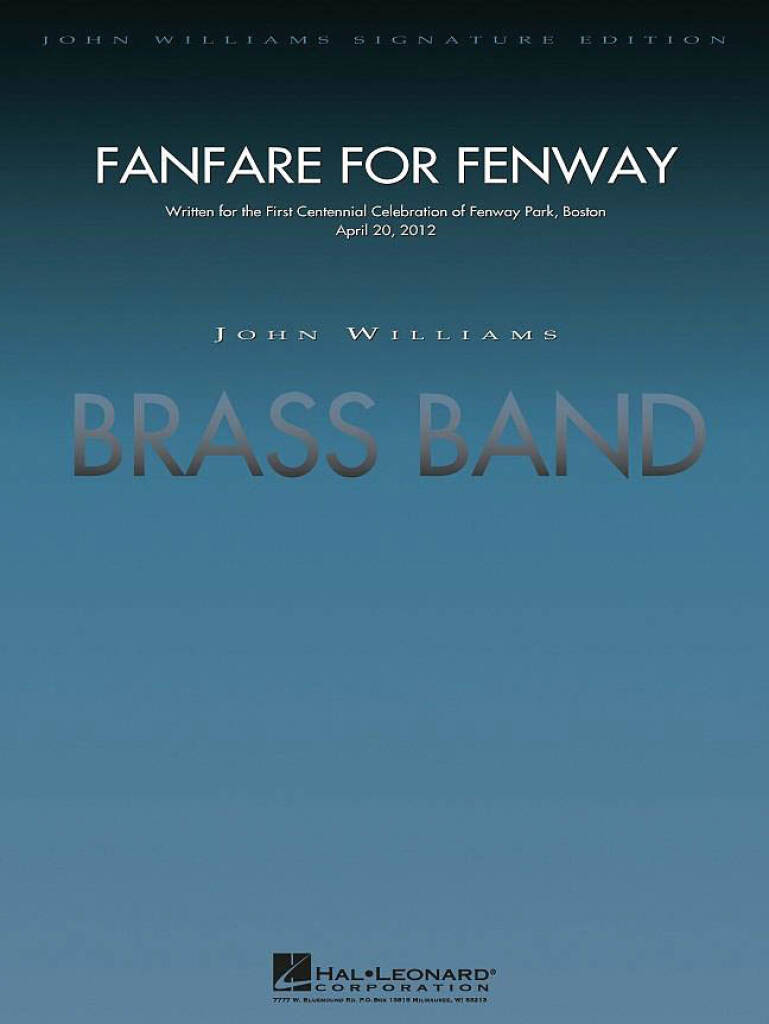 £74.99
£74.99Fanfare for Fenway - John Williams
This spectacular tune from John Williams was originally written for the First Centennial Celebration of Fenway Park in Boston. It was transcribed for brass band by Stephen Bulla for the exclusive 'John Williams Signature Edition' series, approved by John Williams himself. A fancy opener for any occasion!
Estimated dispatch 5-14 working days
-
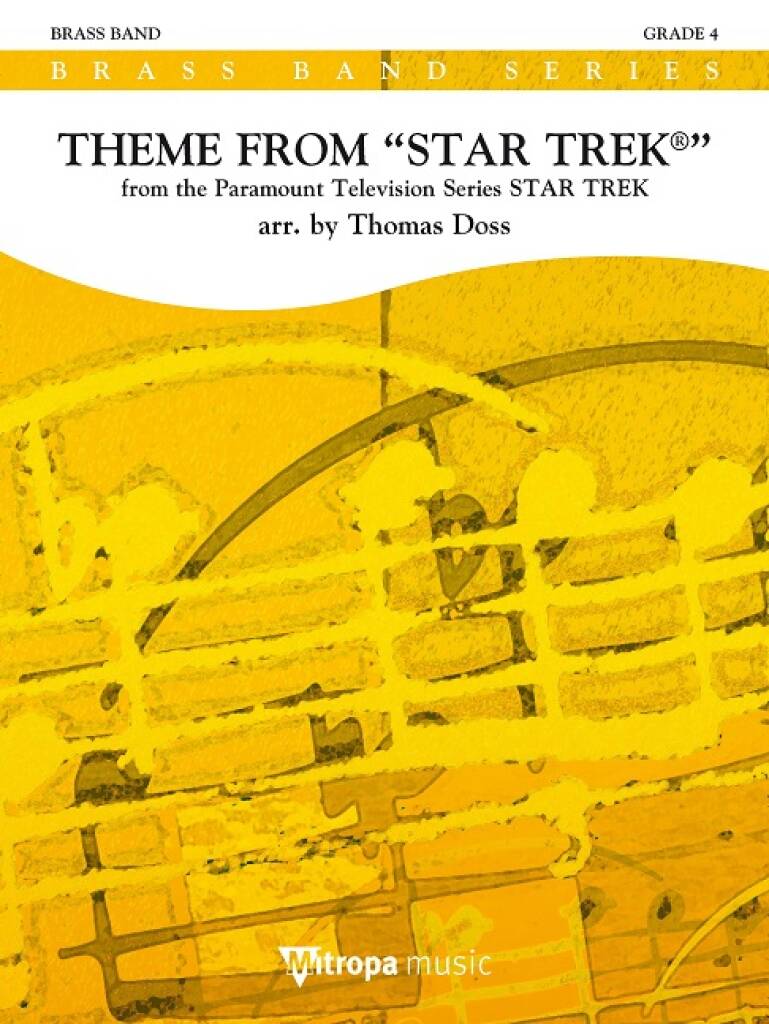 £69.99
£69.99Theme from "Star Trek(R)" - Alexander Courage - Thomas Doss
Who doesn't know the famous introduction 'To boldly go where no man has gone before' at the beginning of each Star Trek sequel? Many generations grew up with Star Trek - one of the most iconic Sci-Fi series ever written.The original theme is as iconic as the opening line. A great warm up for the next Star Trek series in 2017, arranged by Thomas Doss.
Estimated dispatch 5-14 working days
-
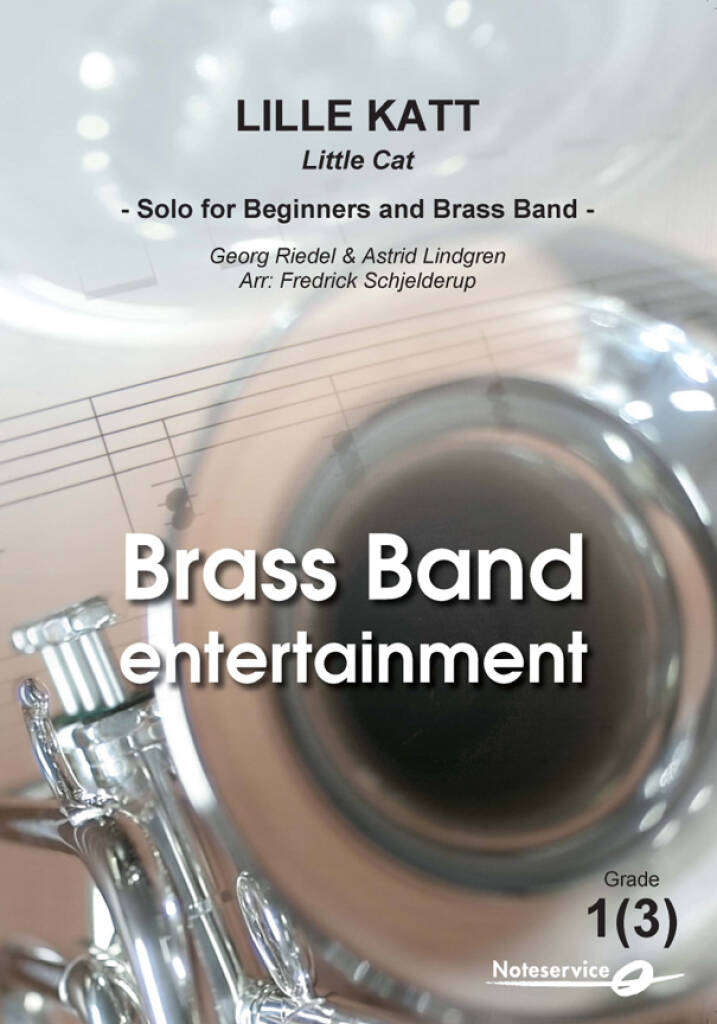 £92.20
£92.20Lille Katt - Georg Riedel - Fredrick Schjelderup
This arrangement is based on the well-known melody "Little Cat" from the Swedish TV-series about Emil from Lonneberget written by Astrid Lindgren.The easy melody is arranged with a funky accompaniment and riffs, letting the beginners by soloists with the band.The arrangement also include song and rap where the young soloists, the band and the audience can be featured as soloists.
Estimated dispatch 5-14 working days
-
£127.30
Beginner's Suite - Øystein Sjøvaag Heimdal
This is a four-part suite written for beginning bands at grade level 1. The four movements are different in character and style, and can be performed as a suite or as single movements.Every part is challenging and the melody are played by various instruments throughout the piece.Several doublings makes itplayable also with a smaller band than the scoring indicate.
Estimated dispatch 5-14 working days
-
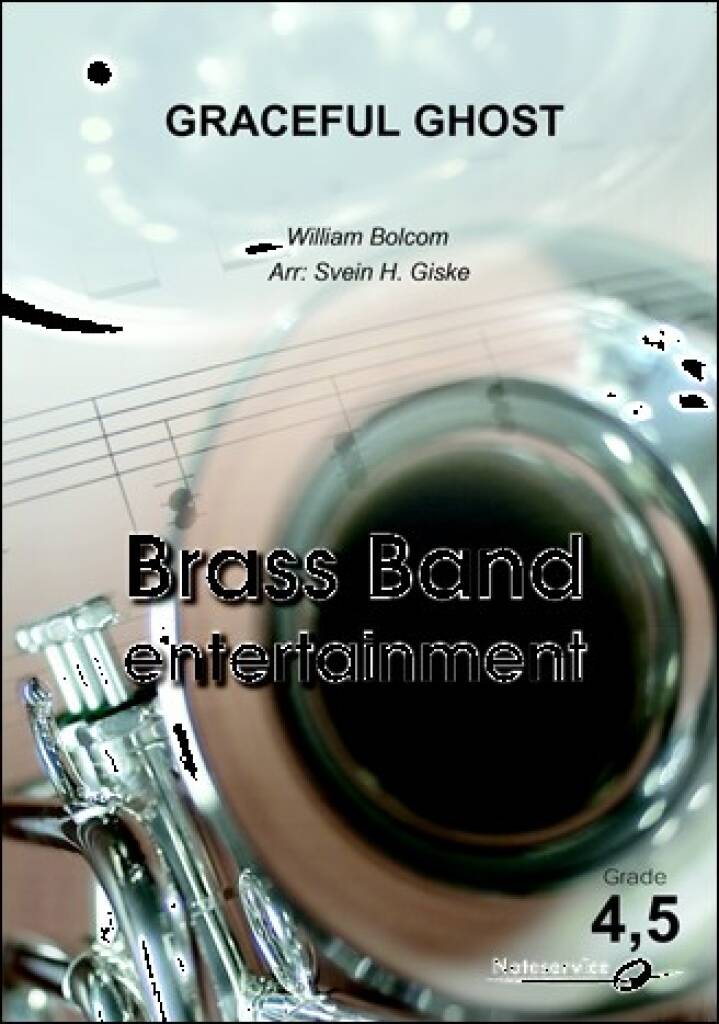 £127.30
£127.30Graceful Ghost - William Bolcom
I came to know of this piece when hearing famous Norwegian ragtime pianist Morten Gunnar Larsen playing it at a concert with the Norwegian Navy Band Bergen. I was struck by its melancholic beauty and wanted to arrange it for band.Ragtimes are rarely in a minor key (which this one is) and when you first hear it, you might think it was written around the time when Scott Joplin was the main ragtime composer. But, if you listen more carefully, you notice that some of theharmonies are more advanced than one might expect in traditional ragtime, giving the piece a slightly more contemporary feel. The composer William Bolcom wrote Graceful Ghost in 1970 to honour the memory of his father and it is one of hismost popular pieces.
Estimated dispatch 5-14 working days
-
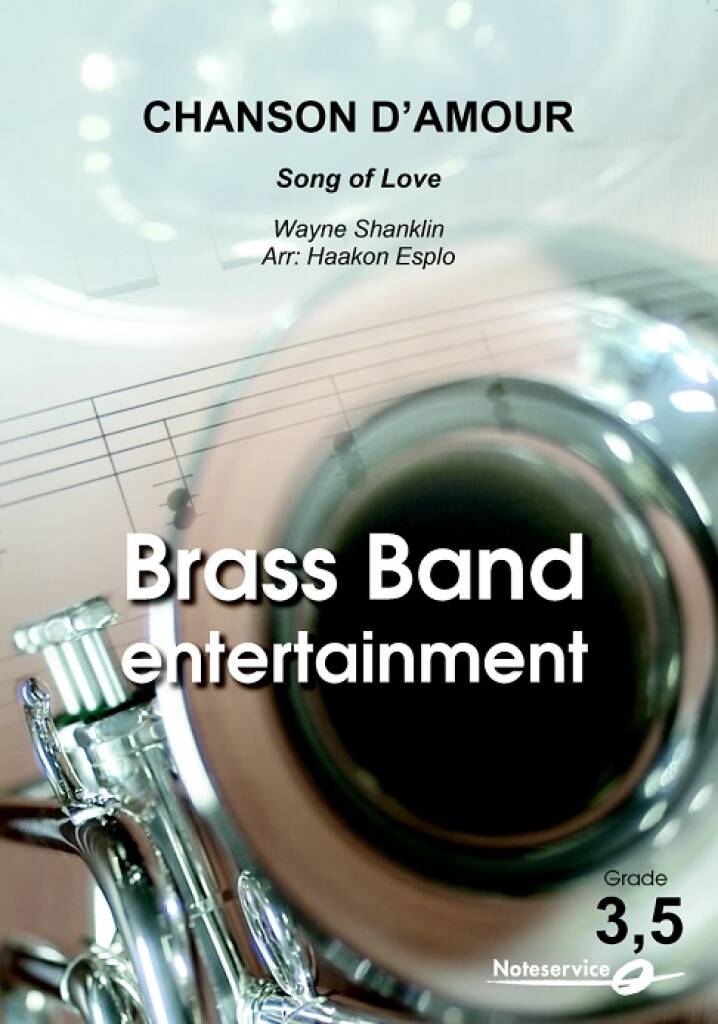 £127.30
£127.30Chanson D'Amour - Wayne Shanklin - Haakon Esplo
Chanson DAmour ("Song of love") is a popular song written by Wayne Shanklin. It became a Top Ten hit in 1958 performed by Art and Dotty Todd. The married couple were the resident act at the Chapman Park Hotel in Los Angeles at the moment.A1977 recording by the Manhattan Transfer was an international hit, reaching no 1 in the UK Singles Chart and in Australia. The recording sold 1,8 million albums in Europe alone. Many artists worldwide has recorded Chanson d'amour in Englishand in native languages.
Estimated dispatch 5-14 working days
-
£101.30
Salute to Liberty - March - John Brakstad
This march is written for the 70-year anniversary of the conclusion of the World War II in 1945.
Estimated dispatch 5-14 working days
-
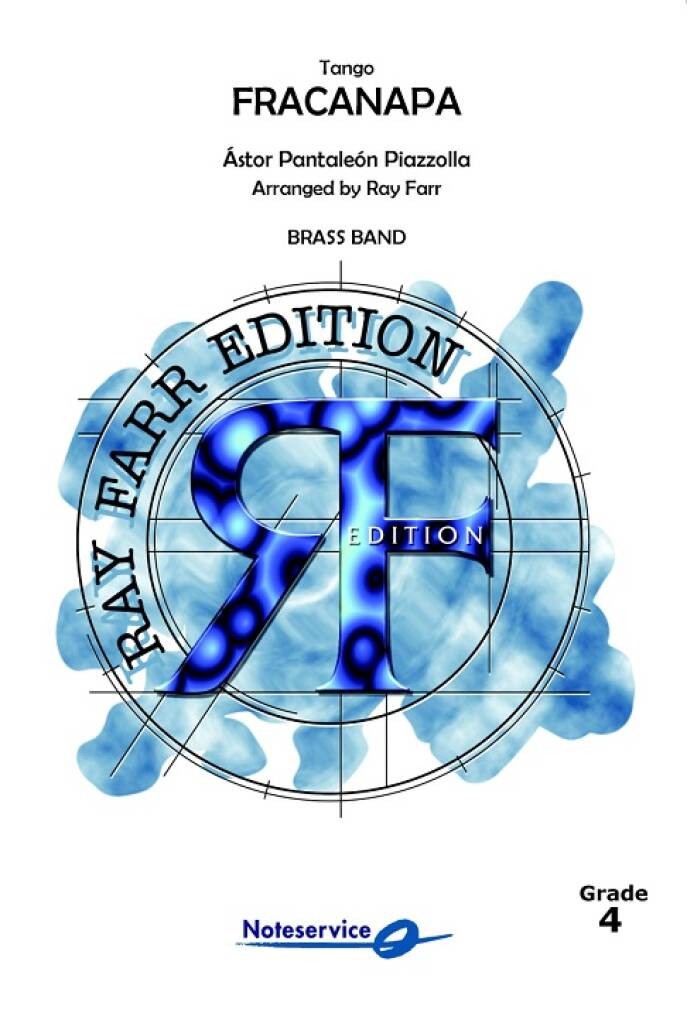 £115.60
£115.60Fracanapa - Astor Piazzolla - Ray Farr
Fracanapa was written and recorded by Piazzolla in the 60s and based on one of the characters from the Italian street carnival. Traditionally these characters were marionettes, dressed in a tailcoat with a red waistcoat and a wide hat. He was quite fat and had an enormous nose but was good-hearted, witty and sociable. He enjoyed good food and loved Amarone wine. His main aim in life was to make people smile.
Estimated dispatch 5-14 working days
